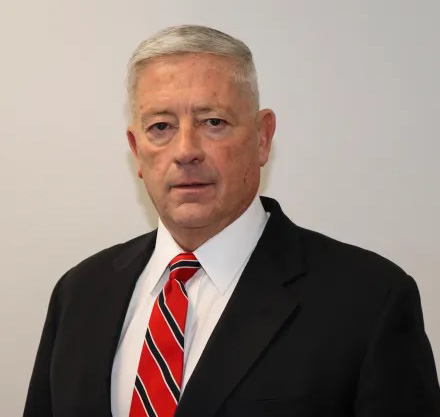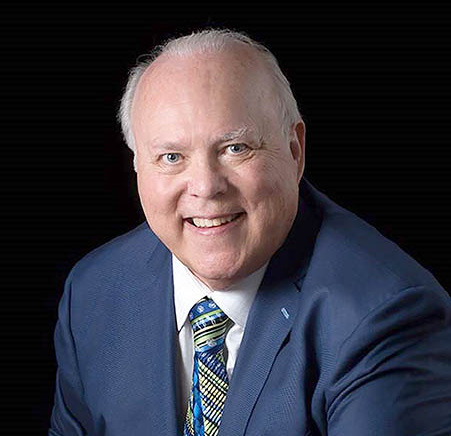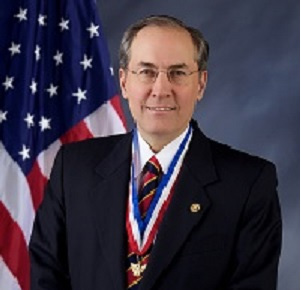Q: How should commissioners serve units experiencing difficulty in times of social distancing?
During times of social distancing, units that have not found ways to meet virtually risk losing the attention and participation of their Scouts. This hinders the experience promised to the youth. Commissioner service for units not meeting and other high-risk units becomes especially important now!
Commissioners should use their passion for Scouting and their communication skills to express to unit leaders that Scouting can have a significant positive impact on Scouts and their families even during social-distancing measures.
Below are some examples of how unit Scouters can maintain the program from a distance. Additional resources and ideas can also be found on the BSA’s Scouting at Home webpage, the Commissioners’ Program Support Resources webpage, the Commissioners’ Virtual Meeting Guidance page, and the websites of many local councils. As always, please remember to adhere to Youth Protection practices, reminding all Scouts and Scouting volunteers to practice two-deep leadership with all communication—emails, texts, phone calls, online video platforms, etc.—and encouraging unit leaders to consult the Digital Safety and Online Scouting Activities web page for additional guidance regarding youth safety.
- Cub Scouts:
Den leaders might encourage parents and/or guardians to open up the appropriate handbook for their children’s Cub Scout den and work on requirements together with the Scout. This approach could help strengthen family bonds. At the Cub Scout level, virtual meetings through various internet platforms might not be feasible, so encouraging hands-on activities at home and sharing photos of these interactions with other pack families could provide the needed positive energy during this time. - Scouts BSA:
Troop leaders should be creative in holding meetings via internet platforms. Patrol leaders, senior patrol leaders, and scoutmasters could encourage Scouts to work on Scout skills at home. Again, sharing photos and/or videos of these activities can spread motivation to other Scouts to keep up with their advancement. Likewise, this is a perfect time to work on Merit Badges, to plan conservation projects, to research future troop and patrol outings, etc. - Venturing:
Similarly, Venturers might take this time to plan future high adventure outings for their crews and work on advancement. Most importantly, though, Cubmasters and Scoutmasters could reach out to crew presidents and advisors, recruiting Venturers to motivate their Cubs and Scouts to continue activities and to serve as instructors and mentors even if at a distance.
Q: Where can commissioners find resources about Scouting at home and conducting virtual meetings?
Are you familiar with our commissioner webpage devoted to offering you program support resources? It provides direct access to a host of other sites that will provide commissioners the information they need to be the first, best source of information to unit leaders.
That page has been expanded to include links to information about Scouting at Home and virtual meetings. Check in regularly; updates will continue to be added.
See also the Commissioners’ Virtual Meeting Guidance page which provides important and timely information on virtual meeting safety, registration, and holding successful meetings of all kinds.
Q: Are there any tips for conducting virtual Scouting meetings?
In addition to the useful information found on the Commissioners’ Virtual Meeting Guidance page, Carl Drew, District Commissioner for the Capital District in the Baltimore Area Council offers some tips that may be useful when planning virtual Scouting meetings:
- Emphasize that the meeting is an official BSA meeting.
- Adhere to Youth Protection guidelines.
- Set expectations: normal unit uniforming/attire should be worn.
- Begin meetings with the Pledge of Allegiance.
- Include the Scout Oath and Law, as appropriate.
- Include an opening invocation, as appropriate.
- When possible and appropriate, conduct the meeting in a manner similar to an in-person meeting.
- When possible, close the meeting in accordance with your normal manner.
BSA also encourages all unit leaders to consult the Digital Safety and Online Scouting Activities webpage to ensure compliance with youth safety guidelines.
Q: What are some virtual conferencing options?
Virtual Scouting has been a hot topic; it also can be a daunting one when the names and capabilities of technology tools to support it start getting tossed around. Which one is best? Are any of them really free? Where do I find out more about them?
Check out Video Conferencing Options for a quick summary of the more popular tools, direct links to their web sites, and some helpful tips on video conferencing preparation and etiquette.
You’ll find a discussion thread on our Scouting Forum for Commissioners. It’s a great place to share your experience with this new way to keep on Scouting.
BSA also encourages all unit leaders to consult the Digital Safety and Online Scouting Activities webpage to ensure compliance with youth safety guidelines.

Q: How do you encourage units to conduct virtual meetings if they have not been doing so?
Experience with social distancing has shown that conducting virtual meetings can be an effective Scouting tool even when social distancing is not an issue. (Please follow any restrictions outlined by your state and local health department or other local officials whenever advised.)
When in-person meetings must be suspended, not adopting virtual meetings runs the risk of losing Scouts’ attention and participation. This hinders the experience promised to youth. While a commissioner cannot require a unit leader to do something, pointing out the risks of not continuing to meet is one approach commissioners can take to encourage action.
The following guidance may also be helpful for unit leaders to consider:
- Conducting virtual unit meetings is imperative to staying connected to youth and their families, as well as to keeping the movement viable and moving forward. We can do our part by modeling resilience to change and helping youth to develop resilience, too. Virtual Scouting presents a valuable opportunity to coach and mentor Scouts in creative problem solving, which will likely help them understand the goals of the program even better.
- This is another chance to leverage youths’ knowledge of technology, and we should encourage them to meet virtually—as patrols and patrol leaders’ councils, for example—to maintain units’ momentum.
- For commissioners:
- It is important to contact units’ Key 3 to conduct an audit and assess if they are meeting. Most councils have added virtual scouting resource kits; these are either online or through email. With most Scouts having some sort of online schooling, there can be advantages to these meetings.
- The hardest part of putting a Key 3 meeting together is physically getting everyone together. There is a real opportunity, now and in the future, to enable virtual Key 3 meetings. Once you train people and overcome the technical issues, this methodology could at least double or triple the future contacts commissioners could have with units’ Key 3.
- Councils have become increasingly engaged in alternative programs for youth. We have seen virtual campfires, virtual campouts, virtual camporees, and virtual roundtables to name a few. As commissioners, you need to be a secondary source of information to the unit leadership, sending reminders and notices to all the units’ leadership.
Commissioners are encouraged to visit the page on Virtual Meeting Guidance to help their units establish best practices for conducting safe and effective meetings.
Q: What is the best way to perform virtual assessments?
One of a commissioner’s five objectives is to contact units and capture, in Commissioner Tools, their strengths, their needs, and a unit service plan that enables continuing improvement. How do we do this virtually?
First, we need to know who to contact. We can and will work with many, if not all, of a unit’s leaders but working with a unit’s Key 3 is critical to our success and the unit’s success. Member Manager, a tool in my.scouting.org, will provide complete contact information for all of the adult leaders in our units. All commissioners have access to this application. Use this information to contact the unit Key 3 to arrange a time to meet in a virtual setting using smartphone or tablet capabilities for conference calling or using virtual conferencing options.
Start at least with a simple contact just asking how the leader is doing. Are they well? Do they have any concerns about the youth in their unit or other leaders in their unit? Let them know you are concerned for them and their well-being as well as the well-being of their unit’s youth and other leaders. It will help you build a stronger relationship with them. Enter the results of your conversation as a simple assessment in Commissioner Tools.
A detailed assessment and unit service plan will take a little more coordination and preparation on your part as a commissioner. Again, arrange a time to meet in a virtual setting. Send a copy of the appropriate detailed assessment form to the unit leaders you wish to include in the discussion. This can be done through Commissioner Tools itself, or you can download the forms from the Commissioner Tools page on the national website.
Practice using the virtual tools mentioned so that you can guide the meeting without too many issues. Become familiar with each tool’s screen-sharing capabilities so that everyone can see the assessment form simultaneously and share their comments. Most virtual conferencing tools have the ability to record the meeting for future reference.
At the conclusion of the online meeting, enter the information in Commissioner Tools.
The most important thing to remember is FOLLOW THROUGH! Make sure the unit gets the assistance they need.
QUESTIONS, COMMENTS, & SUGGESTIONS
Be sure to include your email address in the body of the message if you would like a response.
GO TO: SSG HOME | START A NEW UNIT | BUILD THE UNIT | GROW THE UNIT | COMMISSIONER TOOLS | VIRTUAL SCOUTING FAQ FOR COMMISSIONERS


